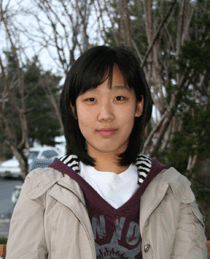김나리 기자

지난호 우리 신문에서는 선거기간을 맞아 특집으로 중앙ㆍ단과대 입후보자 인터뷰를 진행했다. 그러나 입후보자들을 인터뷰 하는 과정에서 많은 기자들이 같은 이유로 한숨을 쉴 수밖에 없었다.
입후보자들이 한결같이 자신의 공약에 미흡한 모습을 보인다는 것이 이유였다. 다수의 입후보자들은 공약에 대한 기자들과의 인터뷰에서 “뽑아만 주시면 열심히 하겠습니다”라고 반복하는 등 중ㆍ고등학교 반장선거와 별반 다를 것이 없이 응했다. 실제로 일부 입후보자들은 공약을 구체적으로 어떻게 실현할 계획이냐는 질문에 “그건 당선되고나면…”이라고 말끝을 흐리기도 했다. ‘공약을 내세운 이유’에 대해서도 명확한 대답을 못하고 얼무리는 입후보자들도 많았다.
또한 총학생회 선거운동본부인 ‘人-special’과 함께한 단위의 공약들은 총학생회가 내세운 공약과 거의 흡사했다. 각 단과대의 특성에 맞는 공약을 찾아 내세워야 하지만 총학의 공약에 묻어가려는 모습으로 보이기도 했다. 사과대의 한 학생은 “처음 기호2번의 공약을 보았을 때 총학의 공약과 같아서 헷갈렸다”고 말했다. 게다가 공약 자체에도 문제가 있었다. 이미 학교 측에서 계획했던 사업을 내세운 것이다. 학교의 한 직원은 “건물 증축과 같은 부분은 이미 학교에서 시행하기로 계획했던 일”이라고 밝혔다.
이는 후보자 개인의 문제만이 아니다. 현재 학생들의 학생자치기구에 대한 무관심이 입후보자들의 이러한 자세에 일조했다. 선거자체에 무관심하다 보니 어떤 후보가 출마했는지, 얼마나 구체적이며 실현가능성이 있는 공약을 제시했는지에 대해 따져 보거나 충분히 알아가는 과정이 생략됐다. 그로 인해 입후보자 역시 유권자를 설득하기 위한 준비에 소홀해 졌던 것이다.
공약에 대한 구체적인 계획 등을 제시함으로써 유권자들의 평가를 쉽게 하는 ‘매니페스토(Manifesto)운동’이 이제는 대학사회에도 필요할 것으로 보인다. 이와 같은 실행을 위해서는 학생들이 자신의 권익을 대표할 학생회장을 뽑는데 관심을 갖고, 더불어 학생 대표자라는 직책을 수행함에 있어 신중한 태도로 임해야 할 것이다.

